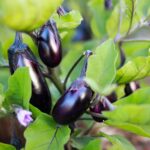Imoni Kai
Today, my laboratory members and I held imoni kai, the literal meaning of which is “stewed potato party.”
芋煮会
Imoni kai is a traditional Japanese party that people make a nabe (pot) dish using taro and eat it in a river bed, and this party is mainly held in the Tohoku region in Japan.
今日は大学の研究室のメンバで、芋煮会を行いました。
Since the harvest season of taro is around October, imoni kai is normally held in autumn.
芋煮会とは、河川敷で里芋を使った鍋料理を作って食べる行事で、主に日本の東北地方で行われています。
There are various seasoning ways, and we made two types of them: “Tonjiru-style”(which is seasoned like miso soup) and “Sukiyaki-style” (which is seasoned with soy source and sugar).
里芋の収穫時期が10月頃であるため、一般的には秋に開催されます。
It was a hard work because we had to make furnaces by assembling stones.
味付けは東北の地方によって大きく異なり、今日は「豚汁風」と「すき焼き風」の二通りを作って食べました。
However, both styles were really delicious and I was satisfied.
河川敷で石を並べてかまどを作るところからだったので大変でしたが、どちらもとても美味しく、大満足でした。




